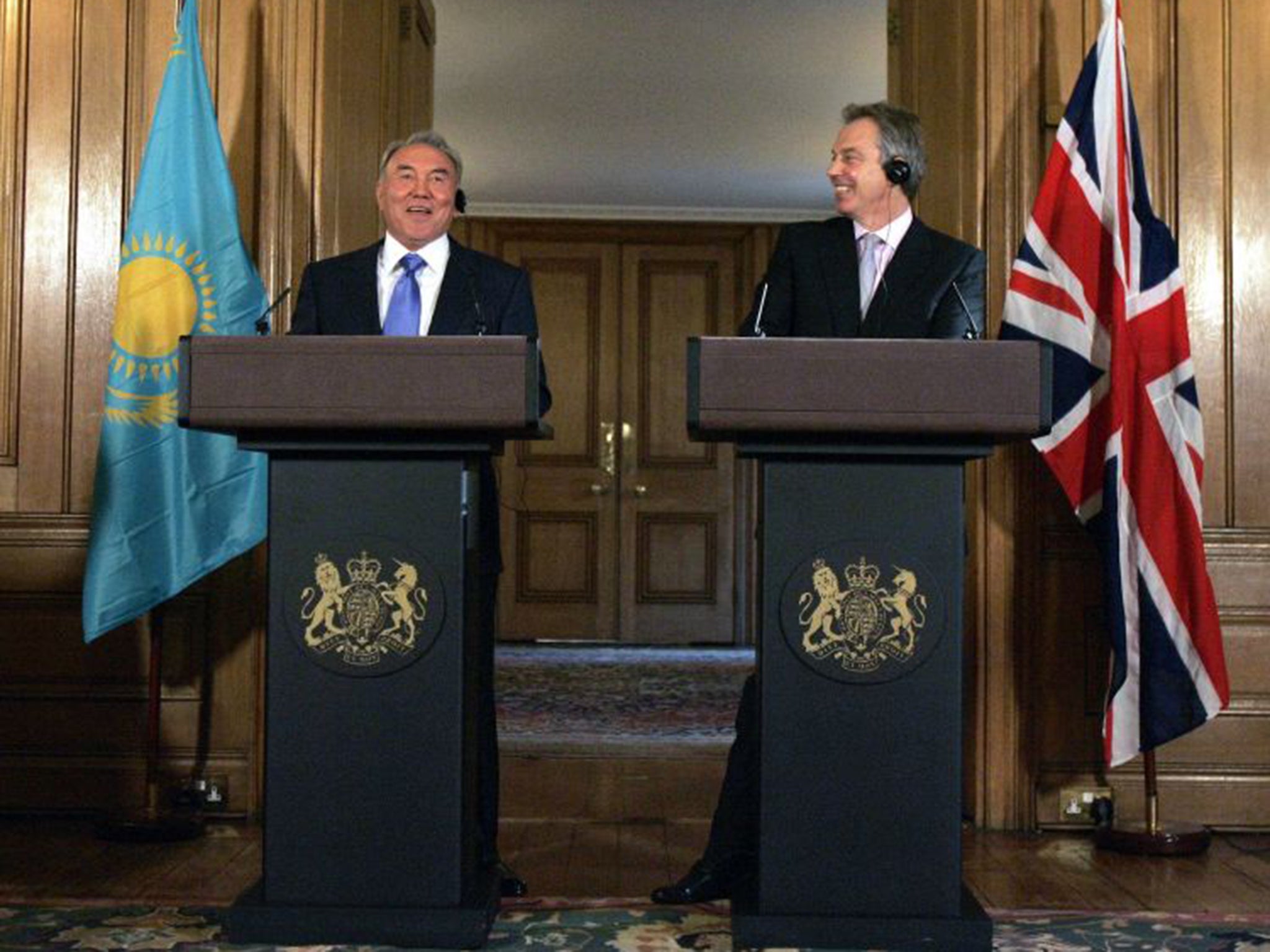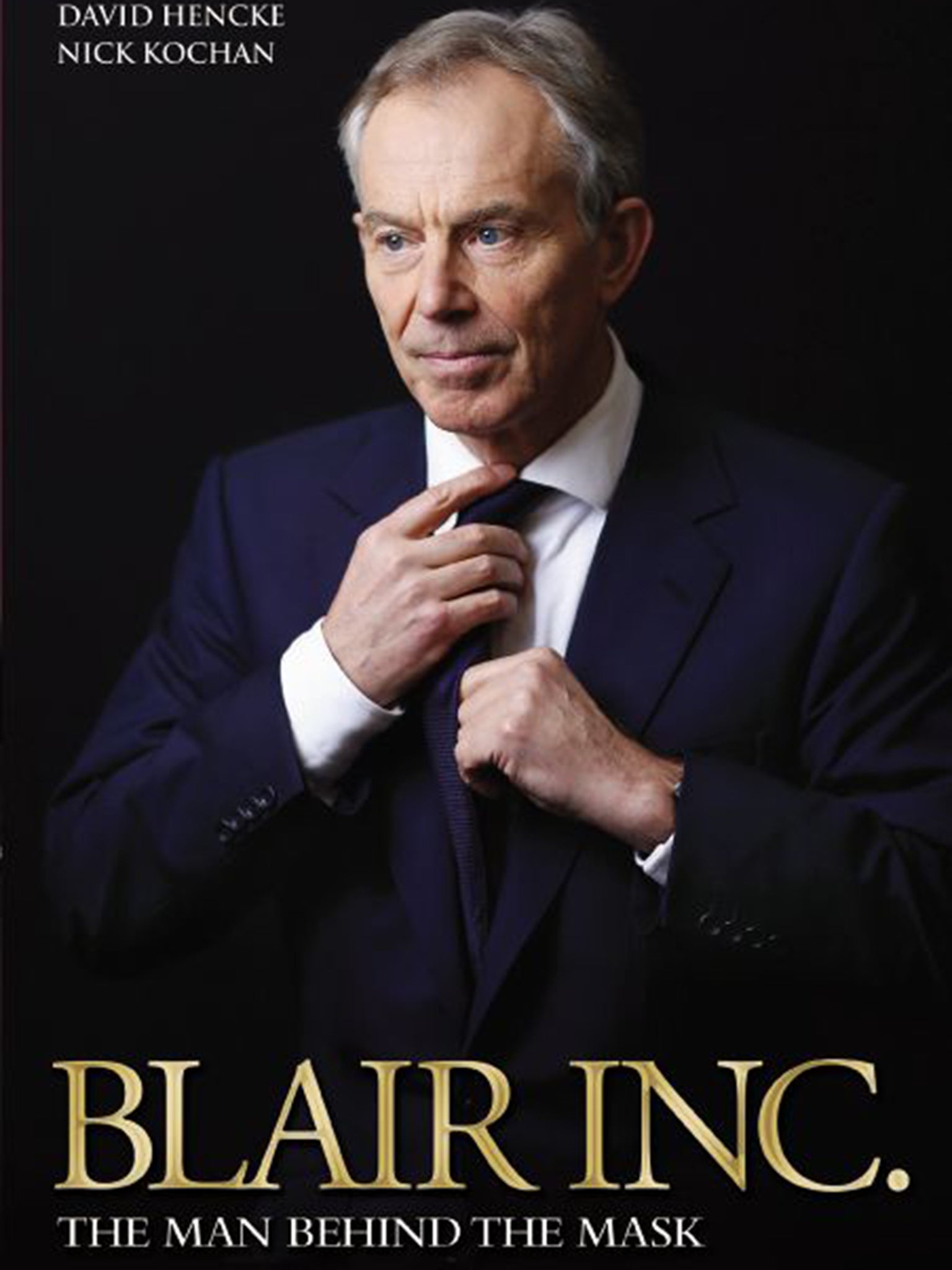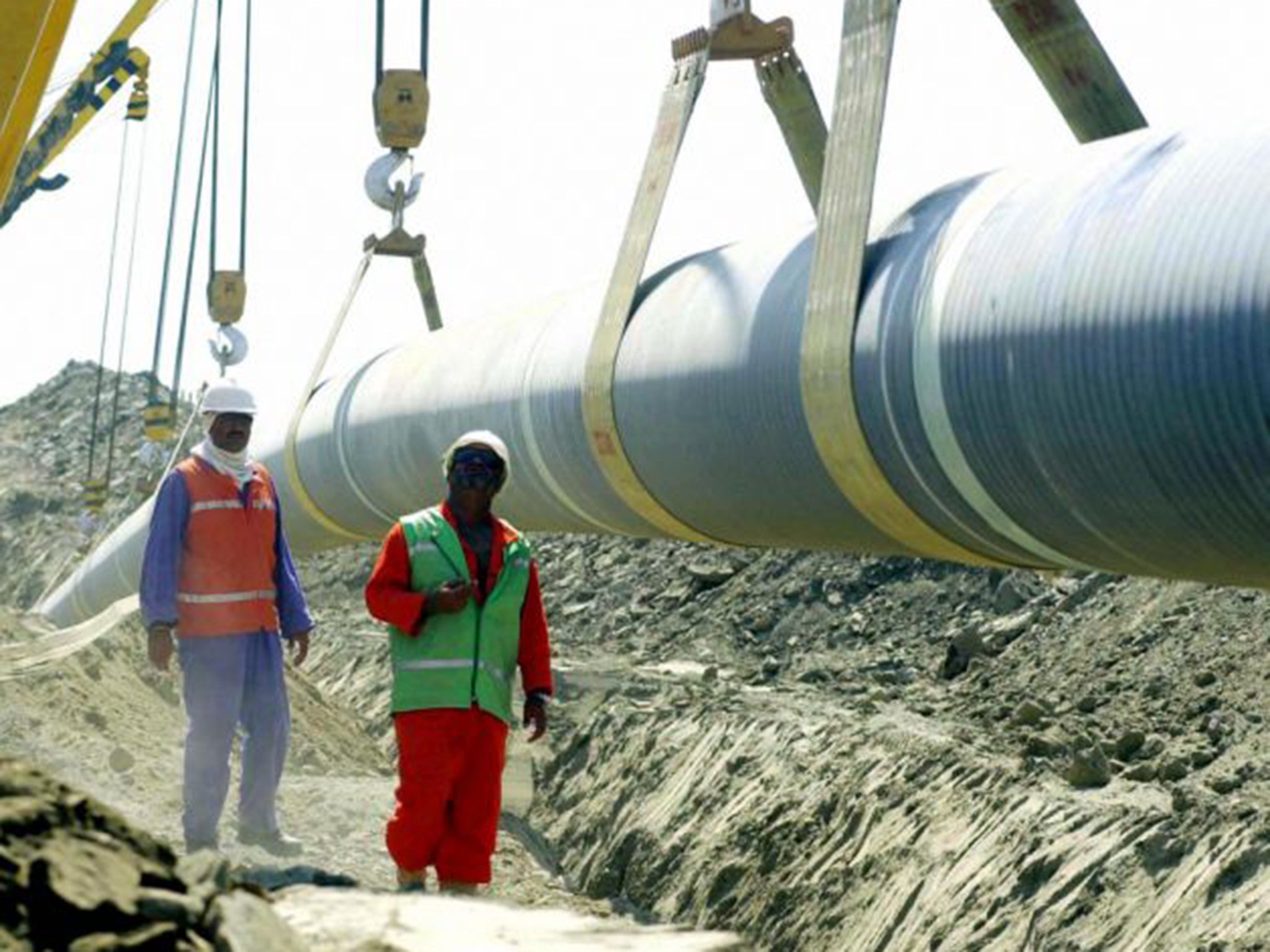Is Tony Blair retiring to spend even more time with his dictators?
Nick Kochan, co-author of a new book on the former PM’s business interests, explains why his position as a Middle East peace envoy was never tenable

Tony Blair’s world is one that looks increasingly divorced from the world most of us occupy. One pinches oneself to believe he was once a Labour Prime Minister whom people voted for in droves. Yet Mr Blair is increasingly history as he disappears off the world stage to pursue private interests. The suggestion that he is quitting as the representative of the Middle East Quartet signals a loss of confidence in Washington and in Brussels in his role and performance.
Today, as I discovered in researching my book, Blair Inc: The Man behind the Mask, Mr Blair lives the life of a Prime Minister without the power and legitimacy to support it. He has the arrogance to sweet talk or lean on world leaders, the town and country houses that go with the job he once had, the retinue to administer his life. But he is living in the past not the present, a contemporary King Lear who still behaves like the king he once was. Unlike Lear, he keeps his cash close to his chest.

The public part of Mr Blair’s post-PM activity was his work as the representative of a Quartet of countries and organisations, Russia, The United States, The European Union and the United Nations. This gave him responsibility for directing international investment into the Palestinian territories. Mr Blair took up the position on leaving power in June 2007, apparently with the help of George W Bush, who sought to reward him for supporting the Iraq invasion. That failed legacy turned European leaders against his bid to be President of the European Union, on which he had pinned his hopes.
Yet Mr Blair’s achievements in the Quartet role are sparse indeed. He could claim credit for finding the funding for a mobile phone company and a gas extraction plant, although allegations that investment bank JP Morgan, a Blair client that pays him an annual $2m, might possibly profit from the deals have not gone away. Mr Blair has vehemently denied them. Blair has been seen as too close to the Israeli leadership to be objective, and his almost complete lack of success as the Quartet representative can be explained by the scarcely disguised mistrust the Palestinian population have for his efforts.
Perceived potential conflicts of interest have haunted the Blair project at every stage. So James Wolfensohn, Mr Blair’s predecessor as Quartet representative and a former president of the World Bank, told us that the Quartet job could be a very convenient calling card for someone looking to promote their business interests. “For Tony Blair to say, ‘I would like to talk to you about the [Middle East] peace process’ is a very different entry point, to saying ‘I would like to get an oil concession in the east of your country for a client’ or ‘I would like to become an adviser to your country.’”
The politician turned salesmen continues to prove adept at selling the consultancy services of Tony Blair Associates to a host of dubious or unpopular political leaders. His clients include the President of Kazakhstan, Nursultan Nazarbayev, General Sisi of Egypt, the Crown Prince of Abu Dhabi, the Abu Dhabi state company Mubadala, the Democratic Republic of Congo and most recently the Government of Serbia.
Mr Nazarbayev is perhaps the most distasteful. Mr Blair met the ex-Communist henchman in 2000 when he was still Prime Minister and the two have stayed close ever since. Mr Blair joined Mr Nazarbayev as a cheerleader in 2011 on a deal worth £8m a year. It is an all-embracing public relations job for the ruthless tyrant; one year Mr Blair is fronting up a video panegyric for the President, the next he is writing words for a speech in which Mr Nazarbayev will explain to Cambridge students the following month why Kazakh police shot down 15 striking oil workers. Mr Blair also opened doors for David Cameron who wanted to visit Kazakhstan.
Mr Blair is backed in these and other international assignments by his old team from No 10, Alastair Campbell and Jonathan Powell. They are directors of Blair companies and on his gravy train.
Mr Blair runs after high-paying jobs with alacrity, but those that he does pro bono do not always seem so important. How else to explain the apparent snub felt by the President of Guinea. Mr Blair was speaking at an investment conference for that desperately poor country, which is supported by the Tony Blair Africa Governance Initiative.

When Mr Blair descended from the platform after giving his “keynote address” he gave the President a cursory handshake and disappeared. Whether or not there was some other reason, the lesson is simple: New Blair is a prisoner of new money.
Blair has ploughed the profits from his consultancy and speaking activities into a multimillion property empire, crowned by his residence at 29 Connaught Square, near Marble Arch in central London, policed by two armed guards day and night, at taxpayers’ expense. This might be his No 10. It is estimated to be worth £8.3m.
Then there is South Pavilion, the country house in Buckinghamshire, his Chequers. This massive pile is surrounded by a 6ft-high, 300ft-long modern steel boundary fence to shield Blair from his neighbours. He claims he needs it to protect his privacy, but they see it as a blight on the village of Wotton Underwood.
Other reaches of the property empire are London houses for the Blair’s four children and blocks of flats in Manchester and Stockport, owned by companies belonging to Cherie Blair and Euan Blair, their oldest son. In all, the Blair family is believed to have 36 properties as of today– 31 in the UK and five abroad – worth tens of millions.

Secretive off-the-shelf companies called Windrush Ventures and Firerush Ventures it is claimed are at the centre of the corporate spider’s web over which Blair presides. Blair’s fees, and indeed all his earnings are protected by complex tax structures, nothing illegal of course, but constructed by the top accountants KPMG and are inevitably complex and opaque.
The conclusion of the years of investigation that can be found in Blair Inc is that Blair has prostituted his legacy to the pursuit of Mammon. He has created a new world that is as remote as it is distasteful for those who care about the morality and standing of British politics. Political friends and foes alike are left cold with disgust.
Join our commenting forum
Join thought-provoking conversations, follow other Independent readers and see their replies
Comments
Bookmark popover
Removed from bookmarks